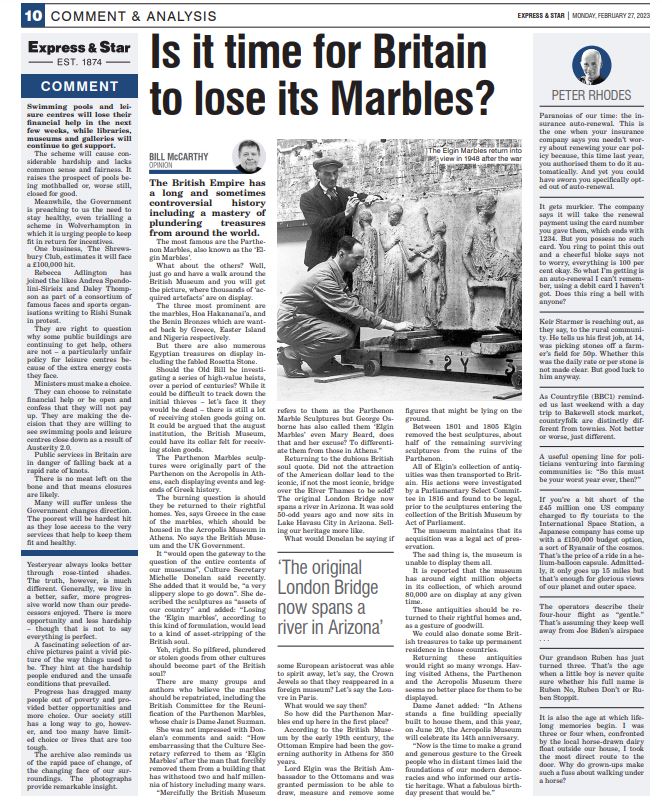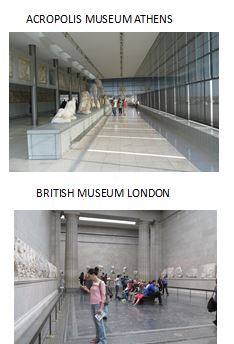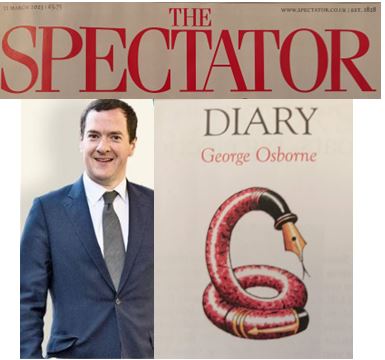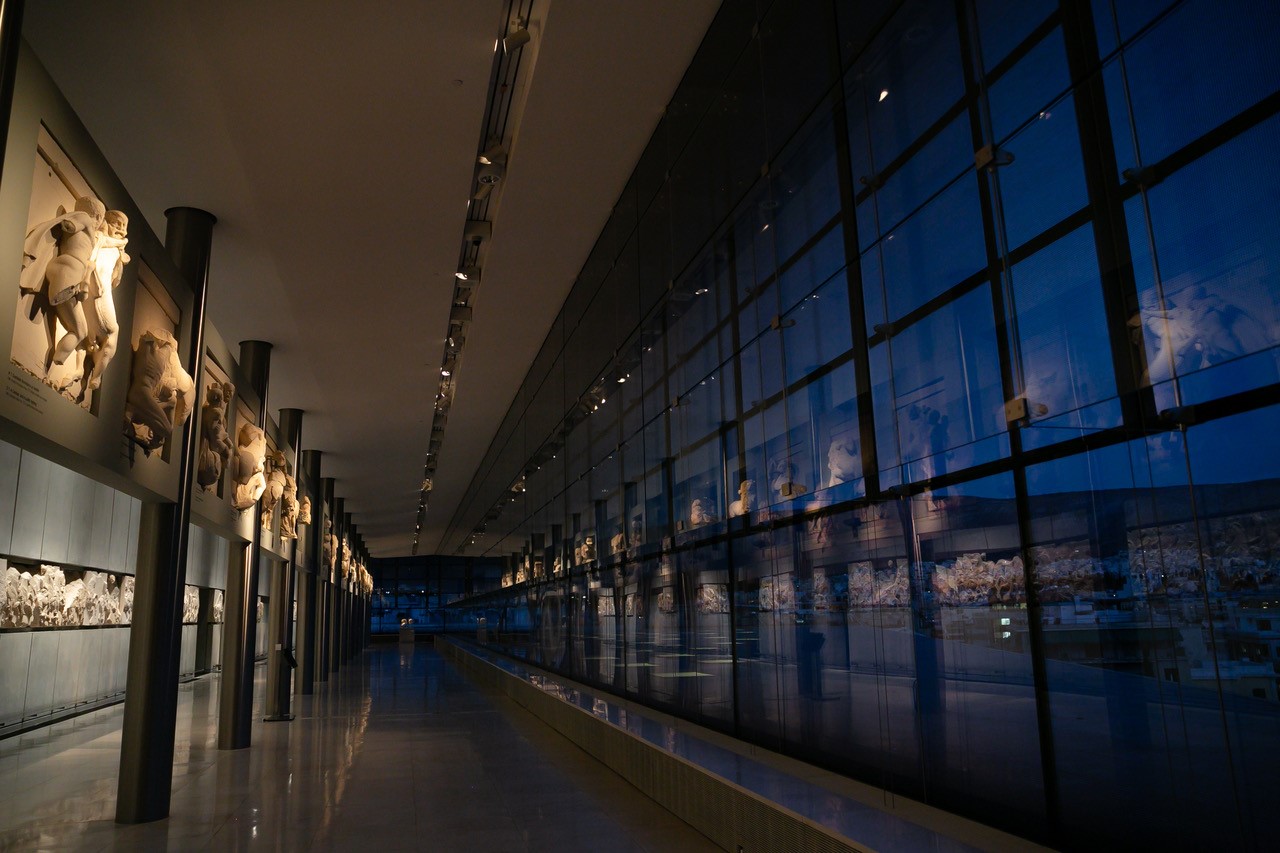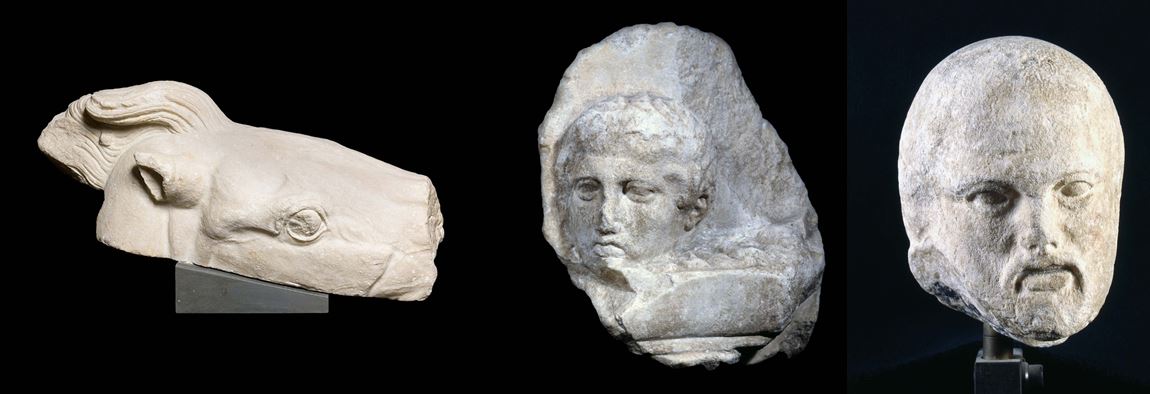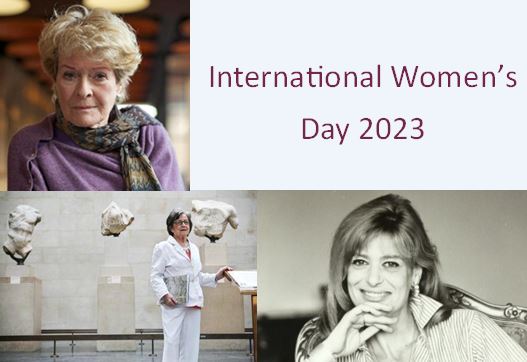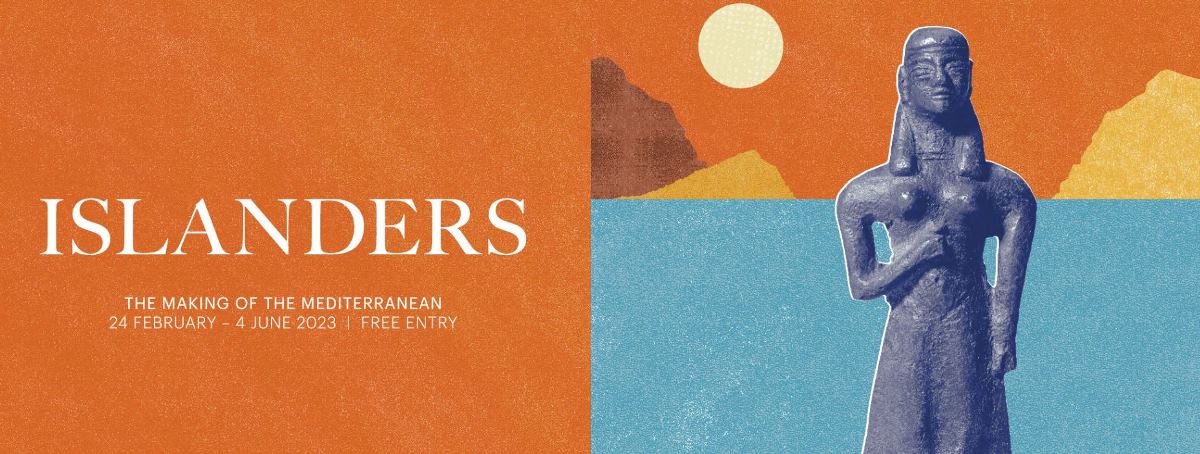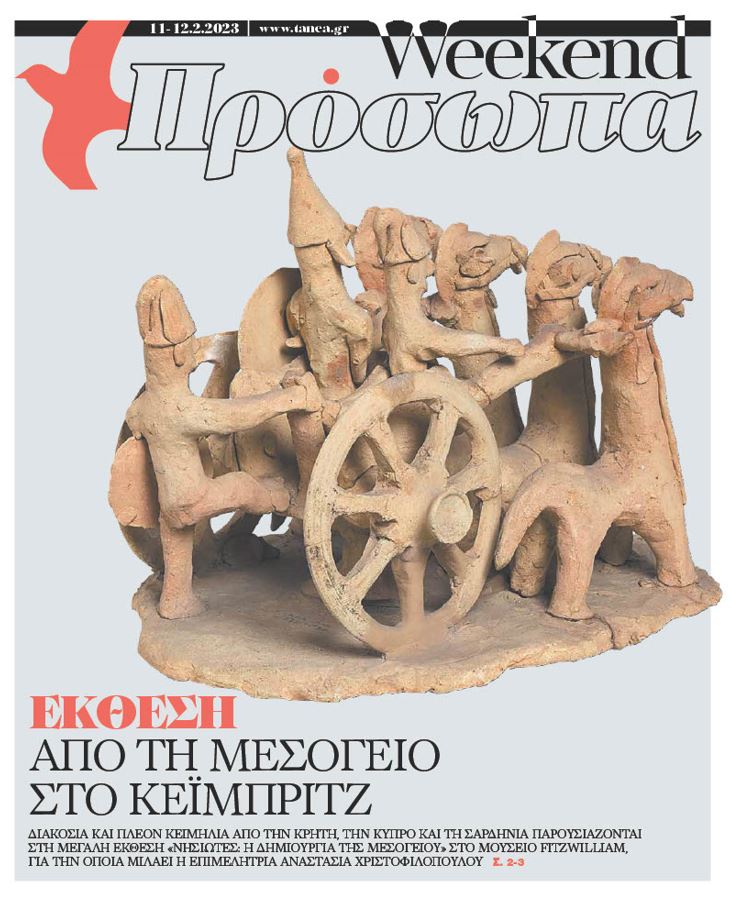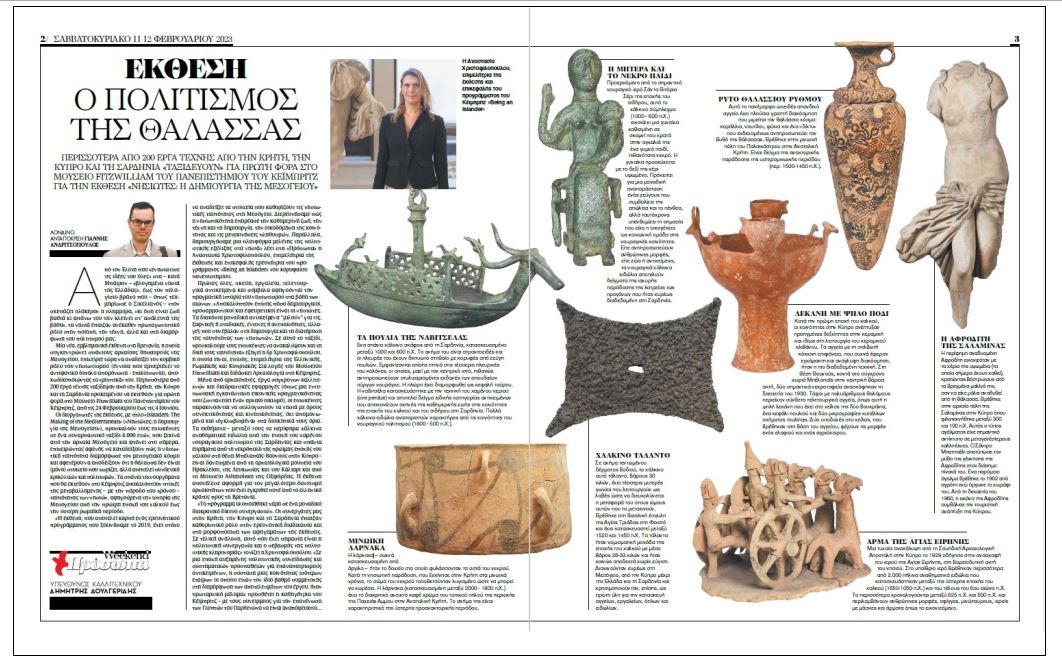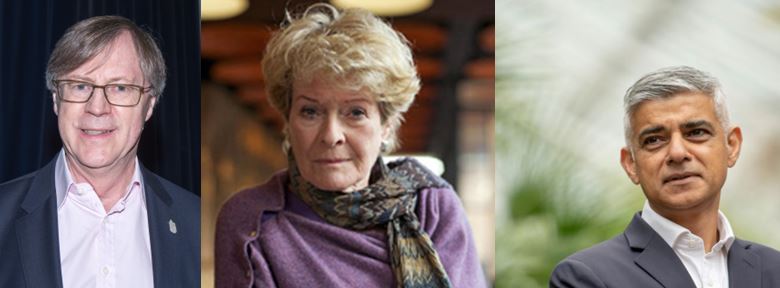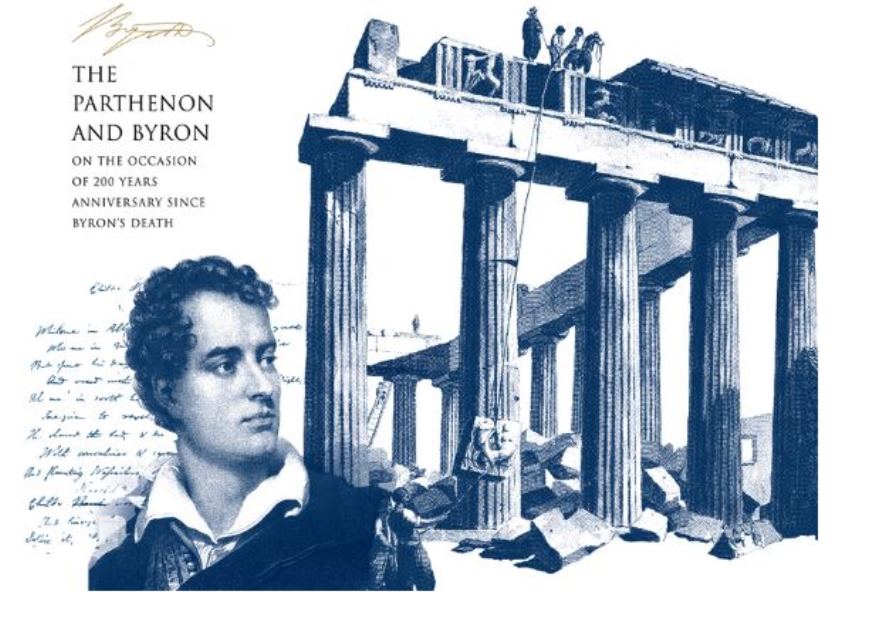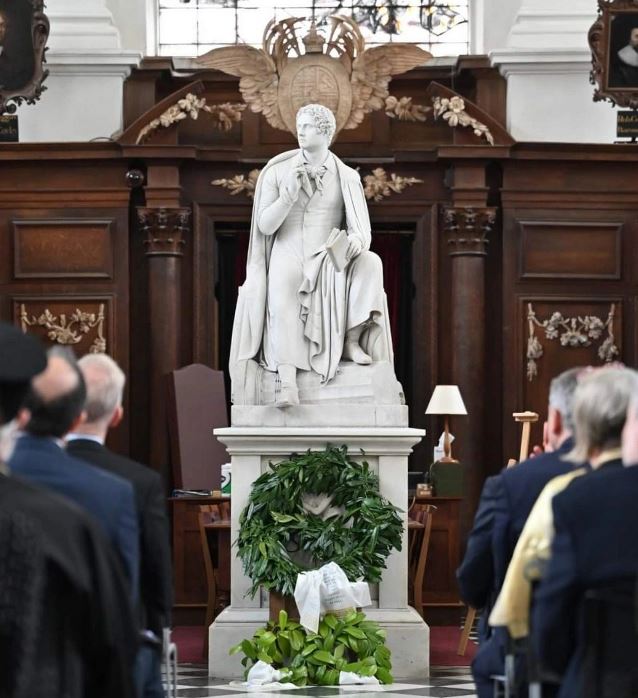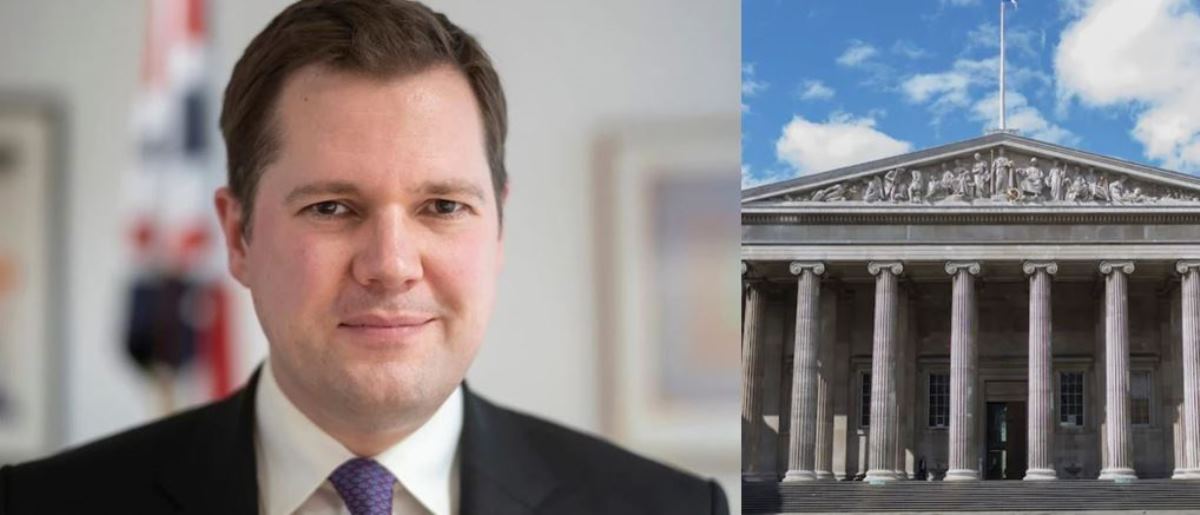The British Empire has a notable history including a mastery of plundering treasures from around the world.
The most notable of which are the Parthenon Marbles, also known as the ‘Elgin Marbles’, and the others? Well, just go and have a walk around the British Museum and you will get the picture, where thousands of ‘acquired artefacts’ are on display.
The three most prominent are the marbles, Hoa Hakananai’a, and the Benin Bronzes which are wanted back by Greece, Easter Island and Nigeria respectively.
But there are also numerous Egyptian treasures on display including the fabled Rosetta Stone.
It could be argued that the august institution, the British Museum, could have its collar felt for receiving stolen goods.
Should the Old Bill be investigating a series of high-value heists, over a period of centuries, given they are not having a great time of it at the moment? While it could be difficult to track down the initial thieves, let’s face it they would be dead, there is still a lot of receiving stolen goods going on.
What are they?
The Parthenon Marbles are a series of sculptures that were originally part of the Parthenon on the Acropolis in Greece, each displaying events and legends of Greek history.
The burning question is should they be returned to their rightful homes.
Yes, says Greece in the case of the marbles, which should be housed in the Acropolis Museum in Athens. No, says the British Museum and the UK Government.
The Parthenon in Athens and the Acropolis Museum
It “would open the gateway to the question of the entire contents of our museums”, Culture Secretary Michelle Donelan said in a BBC interview in January.
She added that it would be, “a very slippery slope to go down”. She described the sculptures as “assets of our country”. Losing the ‘Elgin marbles’, according to this kind of formulation, would lead to a kind of asset-stripping of the British soul.
Yeh, right. So pilfered, plundered or stolen goods from other cultures should become part of the British soul?
Dame Jane Suzman
There are many groups and authors who believe the marbles should be repatriated, including the British Committee for the Reunification of the Parthenon Marbles (BCRPM), whose chair is Dame Janet Suzman.
She was not impressed with Donelan’s comments and said: “How embarrassing that the Culture Secretary referred to them as ‘Elgin Marbles’ after the man that forcibly removed them from a building that has withstood two and half millennia of history including many wars.
“Mercifully the British Museum refers to them as the Parthenon Sculptures but George Osborne has also called them ‘Elgin Marbles’ even Mary Beard, does that and her excuse? To differentiate them from those in Athens.”
Returning to the dubious British soul quote.
Did not the attraction of the American dollar lead to the iconic, if not the most iconic, bridge over the River Thames sold?
The original London Bridge now spans a river in Arizona. It was sold 50-odd years ago and now sits in Lake Havasu City in Arizona. Selling our heritage more like.
What would Donelan be saying if some European aristocrat was able to spirit away, let’s say the Crown Jewels. After a period of time, they reappeared in a foreign museum? Let’s say the Louvre in Paris.
What would we say then?
Would it be: “If we bring the Crown Jewels home, it would be a slippery slope to go down and that particular country would be stripped of what had become their assets?” I doubt it.
According to the British Museum by the early 19th century, the Ottoman Empire had been the governing authority in Athens for 350 years.
Lord Elgin was the British Ambassador to the Ottomans and was granted permission to be able to draw, measure and remove some figures that might be lying on the ground.
Between 1801 and 1805 Elgin removed the best sculptures, about half of the remaining surviving sculptures from the ruins of the Parthenon.
All of Elgin’s collection of antiquities was then transported to Britain. His actions were investigated by a Parliamentary Select Committee in 1816 and found to be legal, prior to the sculptures entering the collection of the British Museum by Act of Parliament.
The museum maintains that its acquisition was a legal act of preservation.
The sad thing is, the museum is unable to display them all. It is reported that the museum has around eight million objects in its collection, of which around 80,000 are on display at any given time.
These antiquities should be returned to their rightful homes and as a gesture of goodwill, we could donate some British treasures to take up permanent residence in those countries.
How about the likes of Nigel Farage, John Cleese, Prince Andrew and Katie Hopkins?
They could, perhaps, be joined by the likes of interview genius Richard Madeley or Jeremy Clarkson, Piers Morgan, Laurence Fox, Noel Edmonds or Jeremy Corbyn. Perhaps that would be too much to inflict on anyone. Too much of a cultural shock if you like.
But returning these antiquities would right so many wrongs. Having visited Athens, the Parthenon and the Acropolis Museum there seems no better home for them
Dame Janet added: “In Athens stands a fine building especially built to house them, and this year, on 20 June, the Acropolis Museum will celebrate its 14th anniversary.
“Now is the time to make a grand and generous gesture to the Greek people who in distant times laid the foundations of our modern democracies and who informed our artistic heritage. What a fabulous birthday present that would be.”
Bill McCarthy article was published in the Express & Star, alongside other regional titles
